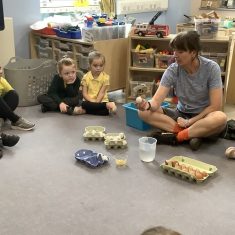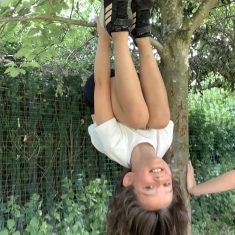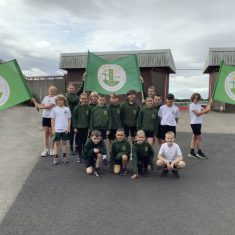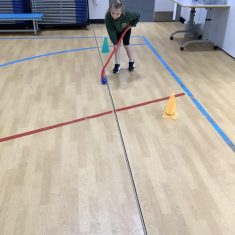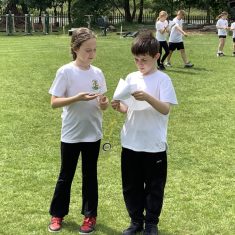Our Vision

Mr Hollingworth – Lower Key Stage 2 Lead / Curriculum Lead
At Harlow Green Primary School, our vision is to provide a high-quality physical education curriculum which inspires all pupils to succeed and excel in competitive sport and other activities involving physical literacy. Through PE and school sports (in clubs, internal and external sports events, break times and lunchtimes), our children learn to develop the important qualities of discipline, resilience and ambition, leading to improved concentration, attitude and academic achievement across our broad and balanced curriculum. We aim to provide opportunities for all pupils to become physically confident in a way which supports their health and fitness and take part in regular high intensity physical activity to support their well-being. We offer a PE curriculum which will allow pupils to learn about themselves, the importance of a healthy lifestyle, self-expression and concepts such as fair play and respect. It also contributes to the development of a range of important cognitive skills such as decision making and analysis, and social skills such as teamwork and communication. The curriculum is designed to support children to develop and revisit key skills from previous year groups as they move through school. We recognise that PE and school sport make an extensive contribution towards aspects of pupils’ social, moral, spiritual and cultural development.
Aims
The national curriculum for physical education aims to ensure that all pupils:
- develop competence to excel in a broad range of physical activities
- are physically active for sustained periods of time
- engage in competitive sports and activities
- lead healthy, active lives.
Key Stage 1
Pupils should develop fundamental movement skills, become increasingly competent and confident and access a broad range of opportunities to extend their agility, balance and coordination, individually and with others. They should be able to engage in competitive (both against self and against others) and co-operative physical activities, in a range of increasingly challenging situations.
Pupils should be taught to:
- master basic movements including running, jumping, throwing and catching, as well as developing balance, agility and co-ordination, and begin to apply these in a range of activities
- participate in team games, developing simple tactics for attacking and defending
- perform dances using simple movement patterns.
Key Stage 2
Pupils should continue to apply and develop a broader range of skills, learning how to use them in different ways and to link them to make actions and sequences of movement. They should enjoy communicating, collaborating and competing with each other. They should develop an understanding of how to improve in different physical activities and sports and learn how to evaluate and recognise their own success.
Pupils should be taught to:
- use running, jumping, throwing and catching in isolation and in combination
- play competitive games, modified where appropriate [for example, badminton, basketball, cricket, football, hockey, netball, rounders and tennis], and apply basic principles suitable for attacking and defending
- develop flexibility, strength, technique, control and balance [for example, through athletics and gymnastics]
- perform dances using a range of movement patterns
- take part in outdoor and adventurous activity challenges both individually and within a team
- compare their performances with previous ones and demonstrate improvement to achieve their personal best.
Swimming and water safety
All schools must provide swimming instruction either in key stage 1 or key stage 2.
In particular, pupils should be taught to:
- swim competently, confidently and proficiently over a distance of at least 25 metres
- use a range of strokes effectively [for example, front crawl, backstroke and breaststroke]
- perform safe self-rescue in different water-based situations.
